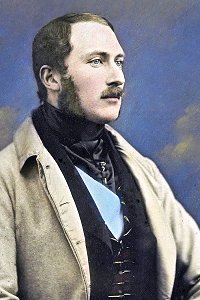Background: London’s Foundling Hospital was an orphanage that became famous for singing. It was founded in 1739 by a merchant named Thomas Coram who was also involved in promoting the Wesleys’ evangelistic efforts in Georgia.
By the early 1800s it was quite in vogue for Londoners to visit Sunday services at the orphanage where the children were led in singing by trained musicians and could be observed at dinner in their quaint costumes.
Handel was so fond of the institution that he donated a chapel organ and gave a number of benefit performances of Messiah
to raise funds for it.
The Foundling Hospital is remembered today chiefly through a hymnbook called Psalms, Hymns, and Anthems of the Foundling Hospital, London, which was published by Coram in 1796. Pasted into the jacket of that hymnbook were the words to this hymn.
Though there is much conjecture about the authorship of the text, each theory has been refuted, and it remains anonymous.
However, the various tunes that are commonly associated with the text are more easily studied. For instance, the first tune that was used with the text was Franz Joseph Haydn’s Austrian Hymn.
The tune gained its notoriety as Deutschland, Deutschland, über Alles, but began its life as Gott erhalte Franz, den Kaiser (God Save Emperor Franz) and it was first performed on Franz’ birthday in 1797. Since some came to associate the tune Austrian Hymn with Hitler, the text to Praise the Lord: Ye Heavens, Adore Him is often coupled with the hymn tune Hyfrydol.
The first verse of the hymn is a paraphrase of Psalm 148 which shows all of creation praising the Lord, from the angels and heavenly hosts above to the creatures of the sea and land below. Implicit in this praise is the fact that God has created all of these beings and provides for their needs. His most loving provision is the redemption He’s offered to us from sin and death, which is the subject of the second verse.
The third verse, which was added in 1836 by Edward Osler in his journal Church and King and first appeared in Hall’s Mitre Hymn Book is a doxology of praise for both the creation of the first verse and the redemption of the second. It is truly a fitting response to God’s goodness.
Background paragraphs © 1996, Greg Scheer. Used by permission. If you’d like permission to use this background text in church publications, please e-mail him (GregSchee@aol.com) or call (412) 247-7364.

